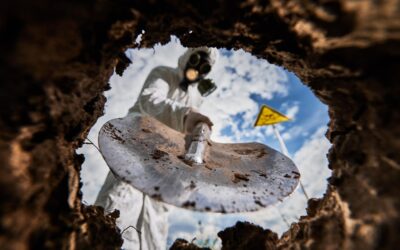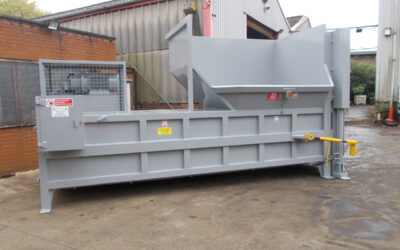
Establish a sustainable site waste management plan for your business.
Engage a waste management expert today.
Get a quote
Understanding Waste Management
To effectively deal with a problem, a thorough understanding is crucial. Waste management encompasses activities and actions required to manage waste from its inception to its final disposal. This includes collection, transport, treatment, and disposal of waste, accompanied by monitoring and regulation. It also comprises the legal and regulatory framework that holds responsibility for the waste removed from your property, including waste transfer notes and guidance on recycling.
The Importance of Site Waste Management Plans in Business
Beyond the evident environmental benefits, effective waste management can introduce several advantages to your business. For starters, it can lead to significant cost savings. By reducing, reusing, and recycling, your company can decrease the quantity of waste dispatched to landfills, thereby cutting waste disposal costs.
Furthermore, by demonstrating your commitment to sustainability, you can strengthen your organisation’s reputation and customer loyalty. Environmentally conscious customers and clients are increasingly attracted to businesses that uphold environmental values.
Lastly, there’s the aspect of compliance. Various laws mandate businesses to manage and dispose of their waste appropriately. Possessing a solid site waste management plan will ensure your company adheres to the law, avoiding fly tipping and other illegal waste disposal methods.

Step-by-step Guide on Implementing a Site Waste Management Plan
1. Conducting a Waste Audit
The first stage in crafting a waste management plan is grasping the nature of your waste. Conducting a waste audit entails identifying and categorising the waste type and volume your business produces. This information serves as a baseline for your waste management activities and helps you spot areas where waste can be minimised.
2. Setting Waste Reduction Goals
After obtaining a clear picture of your waste, it’s time to establish some goals. These should be specific, measurable, achievable, relevant, and time-bound (or SMART). For instance, you might aim to reduce paper waste by 50% over the next 12 months.
3. Identifying Site Waste Management Plan Practices
The subsequent step involves identifying the strategies and practices your business will employ to achieve its waste reduction goals. This could encompass recycling initiatives, composting organic waste, or partnering with a waste recovery service.
Step 4: Develop Waste Reduction Strategies
Developing waste reduction strategies is an essential aspect of preparing a comprehensive waste management plan. This step revolves around creating practical strategies in line with your waste reduction goals.
Consider introducing recycling schemes to limit landfill waste or composting food waste. Additionally, explore modifying your operational processes to boost efficiency and produce less waste. Remember, these strategies should be customised to your business’s unique needs.
Step 5: Training and Communication
Once your plan is in place, it’s crucial that every team member understands it. Conduct training sessions to familiarise your team with the plan and its significance.
Utilise various communication channels like emails and meetings to keep everyone updated on the plan’s progress, thereby fostering a culture of sustainability within your company.
Step 6: Monitor and Review
Monitoring your progress and routinely reviewing your plan is crucial. Implement tracking systems to observe your advancement towards waste reduction goals, conducting waste audits or using waste management software. Keep refining your strategies as needed, ensuring your site waste management plan remains effective and adapts to the evolving needs of your business.

Establishing a site waste management plan in your organisation is more than just an environmentally-conscious move; it’s a strategic decision that can markedly enhance your business’s operational efficiency, curtail costs, and promote a sustainable brand image.
As we’ve seen, the process isn’t as daunting as it may initially appear, with steps ranging from comprehending your waste output to developing practical reduction strategies and ensuring effective communication and continuous monitoring.
Bear in mind, the journey towards waste minimisation is not a one-off event, but a constant process that requires commitment and adaptability. The long-term benefits for your company, society, and the environment make it worth the effort.
Your site waste management plan doesn’t have to be perfect right away – it’s a living document that evolves as your business grows and changes. In addition to positively impacting the environment, you’re laying the groundwork for a more efficient, sustainable, and profitable future.
So, why delay? Begin your journey towards responsible waste management today, and let’s contribute to making the world a cleaner, more sustainable place together.
Go green
Implement your site waste management plan now!
Get a quote
Frequently Asked Questions about Site Waste Management Plans
What is a Site Waste Management Plan (SWMP)
A Site Waste Management Plan (SWMP) is a document that outlines how construction waste will be managed on-site during a construction project. It elucidates the types of waste expected to be produced, the procedures for managing each, and the goals for waste reduction. A well prepared and effective SWMP can introduce several improvements to your construction projects.
Why is a site waste management plan important for businesses?
How often should a site waste management plan be reviewed?
How can I encourage my staff to participate in our site waste management plan?
What are some effective waste management practices for businesses?
Can a small business benefit from a site waste management plan?
How does the SWMP benefit my construction project?
9. How should a principle contractor handle waste produced from construction projects?
Contractors should segregate waste on-site according to type, make sure what can be reused is recovered, and collaborate with licensed waste removal services in accordance with their regulations.
Regularly updating the SWMP throughout the construction project can optimise waste management practices.





